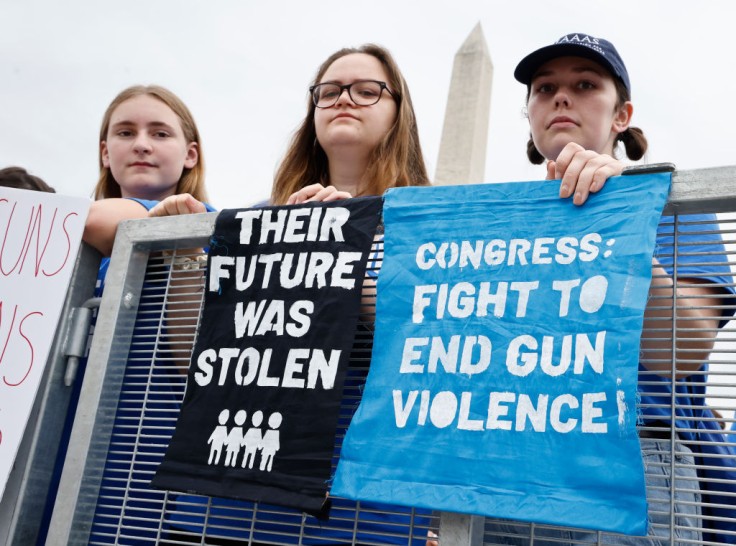
In a groundbreaking study of child firearm injuries, families of young survivors are revealed to be enduring a shared trauma that extends far beyond the physical wounds.
This research, conducted by Harvard University and Massachusetts General Hospital, uncovers the severe mental health challenges faced by child survivors and their families in the wake of firearm injuries, highlighting the pressing need for increased mental health resources to address the profound emotional toll.
Impact of Family Trauma
The study, which meticulously analyzed 15 years of claims data from employer-sponsored health insurance plans, exposed the profound shared trauma experienced by families when a child falls victim to a firearm injury.
Parents, especially mothers, bore a heavy burden, facing a 30% increase in psychiatric disorders, including conditions such as PTSD, anxiety, depression, and psychosis.
Fathers, too, experienced a significant 31% surge in these psychiatric disorders, revealing the far-reaching consequences of child firearm injuries on the entire family.
Dr. Zirui Song, one of the authors of the study and an associate professor of health care policy and medicine at Harvard Medical School, underscored the shared trauma experienced within families and how it contributes to the mental health struggles they encounter.
Additionally, the study highlighted the worrying trend of mothers neglecting their own healthcare, with routine office visits falling by 6%, imaging by 14%, and laboratory tests by 9%, relative to controls.
Child Survivors: Coping with Mental Health Challenges
The research delved into the emotional challenges that child survivors of firearm injuries face, demonstrating a significant increase in mental health struggles following the traumatic events.
During the year following a firearm injury, children and teenagers witnessed a staggering 117% increase in pain disorders, a 68% increase in psychiatric disorders, and a daunting 144% increase in substance use disorders compared to their non-injured peers.
These statistics underscore the profound difficulties that child survivors face on a daily basis as they navigate the painful path to recovery, often struggling to heal and make it through each day.
Dr. Song emphasized that these challenges are a constant part of their lives, underscoring the importance of comprehensive support for these young survivors.
Unseen Siblings: The Hidden Challenge
Interestingly, the data revealed a striking contrast when it came to the siblings of child and teen firearm injury survivors.
Unlike parents, siblings did not exhibit an increase in mental health diagnoses and services.
While the study does not offer a definitive explanation, Dr. Song and his colleagues speculate that siblings might be resorting to less visible and possibly unhealthy coping mechanisms.
Siblings could potentially be withdrawing from social interaction, finding solace in the virtual world, or otherwise evading the healthcare system's radar.
Consequently, this group may not be receiving the appropriate care and support they need, highlighting a crucial area for further investigation and intervention.
Read Also: Biden Administration's Bold Move: Battling Hate Threats on Campus with Scarce Security Advisers
Implications for Healthcare and Policy
The results of this comprehensive study provide a stark reminder of the pressing need for clinicians, communities, and policymakers to prioritize the mental health needs of child and teen firearm injury survivors and their families.
The long-lasting impact of these traumatic events demands ongoing support and resources to ensure their mental well-being.
Moreover, the economic implications of firearm injuries were not ignored.
The study revealed that healthcare costs skyrocketed following a firearm injury, with an average monthly increase of $2,907 for each child and adolescent survivor.
Importantly, it is estimated that only 5% of these additional costs are shouldered by the patients themselves, with insurance covering the remaining 95%.
However, it's crucial to note that this study, despite its groundbreaking findings, has its limitations.
The claims data used was drawn exclusively from commercial health insurance, leaving out a substantial portion of individuals who experience firearm injuries, such as those covered by Medicaid or the uninsured.
Additionally, firearm violence disproportionately affects marginalized populations, making this study less representative of the most vulnerable communities.
Dr. Song and his colleagues have acknowledged these limitations and are currently working on a similar study targeting Medicaid recipients to provide a more comprehensive understanding of the broader impact of firearm injuries.
Despite these limitations, the study's findings serve as a vital contribution to the ongoing discussion surrounding firearm violence and the imperative need to invest in prevention.
Dr. Patrick Carter, an emergency medicine physician and co-director of the University of Michigan Institute for Firearm Injury Prevention, emphasized the significance of preventing firearm injuries to avoid the substantial physical, mental, and economic costs that follow in their wake.
As the nation grapples with the far-reaching consequences of firearm injuries, this study underscores the necessity of addressing the mental health struggles faced by child survivors and their families, who carry the weight of a shared trauma that demands our collective attention and support.